When we read the Telegraph story about former US Postal rider Scott Mercier going mountain biking with his new friend Lance Armstrong, our eyes popped. It was kinda like reading that Good and Evil were now bowling together and throwing a joint barbecue.
It was truly an odd couple: Mercier, who walked away from the sport after refusing to dope on US Postal and Armstrong, former winner of seven Tours de France, the now demythologized hero whose fall from grace and fame and fortune has been spectacular.
We wrote a post about that relationship and Mercier dropped us a note saying he enjoyed reading it. So we followed up to see if he’d be willing to talk more about his experiences out riding with Armstrong and give his feelings about what he suffered through in saying no to doping. He was kind enough to make time and so this is the first part of our conversation (part 2 will post tomorrow.)
Talking with Mercier was easy and the man sounds genuine and upfront and honest. He doesn’t always wish to discuss the details of his private conversations with Armstrong but in general he doesn’t hold back too much. So without further ado ….
TS: You said you were nervous when Lance was following you on twitter — why did you say yes on meeting him? You didn’t need to talk to him.
MERCIER: Gosh, I’m not sure. I didn’t know what to expect. I don’t know why I said yes. I weighed the risks and I was uncomfortable because his persona was one of a very vindictive person. And the irony was, my experiences racing with him were positive — I was never on the receiving end of it — never even witnessed that. He has that reputation for a reason. I was uncomfortable; I wasn’t afraid of him. I was pretty sure there was no risk to my family in doing this. Why did I say yes? I wanted to see what he wanted.
TS: When he first contacted you, what was his rationale for getting together? What was his pitch to you?
MERCIER: His message was very blunt and it was the reason I was skeptical. It just said “We have lots to discuss.” I thought, what the hell do we have to discuss? I mean the irony is, we made vastly different decisions. But in many respects, I view it was the same decision just polar opposites. It was an extreme decision.
TS: You get on the bike with him. I’m imagining it’s a very odd first half hour. What was the first topic he brought up?
MERCIER: Well, first of all, I was late, my business meeting ran long. I get lost on the way to his house and I’m still dressed for work and he was like “Dude, you’re all dressed up.” And I like, “Yeah I’m working.” It was weird because I run into his house to change and he’s pulling my bike out of the car, putting the water bottle on, the wheel on and I’m thinking, what the hell? Lance is putting my bike together for me? So I immediately –somebody who does that — it threw me off — somebody who does that has a little humility, right? That’s not a characteristic he’s known for.
But he wanted to ride and knew the quickest way was to put the bike together so we could go. And the next thing that caught me off guard was that I was wearing a kit from our local college here. And he asked about about the former athletic director there because he’d been sick and Lance had done some fundraisers for him. I thought good grief, this guy has a memory like a steel trap. He’s done thousands of these fund raisers.
Then we go riding and neither one of us is that fit and we’re talking about cycling and kids and life — we both have teenagers. I think we were both trying to find some common ground. And then he starts going in on cycling and what’s happening and Travis Tygart and Verbruggen and McQuaid. It was only an hour and later he says “Know what –can we meet halfway between Grand Junction and Aspen and do this again? It’ll be fun.” So I said yeah.
I kept waiting for him, you know, what’s the ask? What did he want? And it just never came up, it just turned into this natural friendship. We make fun of each other — I mean we weren’t friends before — that’s what is so bizarre for him to reach out to me. Maybe it’s because of the decision I made and maybe it’s the proximity of where I live to where he spends his summers.
But he often says — “You weren’t there, you wouldn’t understand.” Well, that’s not something he can say to me. I was at the cusp of my career and I think you could argue I gave up and suffered more than anybody. Certainly the blood vector doping would have made a massive difference in my performance. I’ve got such a low hematocrit that I would have been one of the guys who got a big boost. But I’m thinking back to your first question — why did I say yes — and people called me a hypocrite for even meeting with Lance. But for me the ultimate hypocrisy would have been not meeting with him. Then I would have been no different than anybody else who’s not willing to investigate and find something out.
So I said I’m gonna keep an open mind. I don’t know what’s going to come of this but I think that’s why I said yes. A, I was curious and B, I don’t like hypocrisy. I felt that I would be no better than anybody else if I’m this vindictive sonofabitch that’s continuing to pile on. Now he did some bad things of course and we don’t need to go into those.
TS: What I’m hearing from you is he never once said, “What do you think?” He didn’t ask for any advice or an opinion on what’s happened to him?
MERCIER: He’s asked those things and some of the stuff he deserves and some of it he doesn’t.
TS: Can you tell me some of those things he asked you and wanted to get your opinion on?
MERCIER: One of those things is, he’ll say, “We went all through this and nothing’s changed.” He says nothing changed in cycling in the last two years. And I said, “Look, Lance, everything changed. Because everybody knows that if they can take you down, nobody is immune.” You think Tejay van Garderen is gonna be above USADA? No, nobody is immune. And he’ll argue they didn’t offer him the same deal, etc etc and perhaps that’s true. Certainly in the court of of public opinion, you think of Lance Armstrong and I would say instantaneously negative connotations come to most peoples’ minds.
TS: He’s written up as the most disgraced athlete in modern times. That’s quite a fall.
MERCIER: And I don’t think he deserves that. Here’s where I have a problem: look, yes, he doped to win some bike races. That’s how it was back then. It’s easy to say you shouldn’t have done it. Well, you were either gonna quit or you were gonna dope. Yes, you could race domestically and perhaps there were a few who raced clean but nobody can find any of them. I knew if I raced in ‘98 I was going to be a doper, no question. Because you get tired of riders putting you in the gutter and the smugness and the air of superiority. So you’re like, fuck it, I’m tired of this.
TS: People get very moralistic but forget what the situation was like, being a young athlete in a culture that was so doped up and compromised. If I had that level of talent and that opportunity, I would have doped. I don’t have as strong an ethical code as you. I would have been weaker.
MERCIER: It’s funny — I hear that a lot — how strong I was. I honestly viewed it as being weak — I was too weak to lie about the doping. People take issue with that but I just felt that once I got started, it was a slippery slope. I didn’t know how it would turn out. I didn’t know how I could stop. I don’t believe all these guys who say they stopped in ’06 with no evidence to the contrary. I wouldn’t have been able to stop if I’d been doping for a decade or more and suddenly I’m gonna go clean. I just didn’t see any other way than to quit.
I’ve been in contact with a lot of people from that era. It’s been very humbling and gratifying. I’ve been in contact with my old roommate Tyler Hamilton and George Hincapie, my old doctor Pedro Celaya — and I don’t have any bitterness toward any of them. None of those people forced me out of the sport. None of them forced me to make the decision I made, none of them cost me my career. I did that to myself. Perhaps I’m the stupidest man on the planet.
TS: You put an unexpected twist on it — having the strength to say no versus a weakness in that you didn’t have the strength to lie.
MERCIER: That’s true. That’s a weird way to say it but that’s true.
TS: Let’s get back to your conversations with Lance. He’s been all around the world apologizing to people and I assumed he asked you about what he’s doing right, what he’s doing wrong, what you’d council him on …
MERCIER: It wasn’t so much that kind of question. We just started talking about life. I have noticed in interviews he’ll say something we talked about but that’s confidential so I don’t want to get into details. I think at first we were just feeling each other out and we found an affinity and a mutual respect for the choices we both made in life. It’s just grown from there.
TS: You knew about doping on US Postal from the beginning. In that story I read about you and Lance riding together, you mentioned regrets. What was going through your mind as you watched Lance win seven tours and become rich and famous while all the time you knew about the drugs?
MERCEIR: It was a hard time for me. Not because of the success they had but because I walked away from it. I think that if you look at sports teams, you could argue that US Postal was the best sports team ever. Maybe the ULCA Bruins in college basketball. You’re talking that kind of dominance of stage racing, of a sport. That’s the price I paid. You walk away from that.
I was happy for Tyler — the guy won a gold medal. George won a mountain stage. Julich — we weren’t teammates — but he got on the podium at the Tour, won Paris-Nice. You see your peers kicking ass, quite frankly. And the thing that was grating was those conversations about doping — just denial after denial after denial. But I know they’re lying, I know flat out they’re lying and that was hard for me. Yes, they were kicking ass but they were lying and that’s well documented now.
TS: You talked about not being strong enough to dope. It’s a hypothetical question but I can’t help asking. If you had known that you’d be on that Tour winning team and benefited financially and professionally, would that have been enough to push you over the edge?
MERCIER: (PAUSE) Probably, yeah, I don’t know. I look at my blood tests from 1997 — I started racing late, I was 22 racing as a cat 4. It took me four weeks to go from cat 4 to cat 2. Then I decided to travel the world with a backpack, so I take 7 months off. I come back, start getting my ass kicked racing with the Pro 1-2’s. But I stick with it — it took me four months to get my cat 1 upgrade. In 15 months I made the Olympic games. I had a big engine, I could suffer.
I pulled out my old blood results from ’97 — so where I’m going with this, in ‘94 I won a spot on the World Championship team. Lance was the reigning champion and I did the road race and time trial. In the time trial I got 17th place and when I looked at that result, it was clean, my average heart rate was 191 and I was 3% away from being World Champion. I was less than 2% away from being on the podium. So my biggest regret — what I always wonder about — was what was my true potential as a cyclist?
It could have been great, it could have been fatal. You see what happened to guys like Pantani and Floyd and Lance. There’s a lot of shrapnel. You can’t be partially clean. The thing that drives me crazy is the guys who still claim “I just did enough to stay in the peloton.” I look that that one of two ways — either you’re incredibly stupid — if you’re in for a penny, you’re in for a pound — or you’re lying. Those are harsh words but that’s how I feel.
The other thing is the guys that whine, “Lance forced me to dope.” I got a real issue with that because the fact of the matter back then was that nobody was good enough to race the Tour de France without doping. So yeah, you could have tried to race clean but you weren’t gonna have a job. It wasn’t because Lance didn’t want you on the team, it’s because you weren’t gonna be good enough to support the best team in the history of the sport going for an unprecedented event.
You can’t say “I was forced off the team if I didn’t dope” when nobody including Lance had the ability to win the tour without doping. If you’re gonna be part of that team that made history, you’re gonna have to be professional and that’s what it took back then. I’m not trying to rationalize what they did, or justify it. That’s just the way it was and you’re either in or you’re out.
(Look for the second part of the interview tomorrow.)

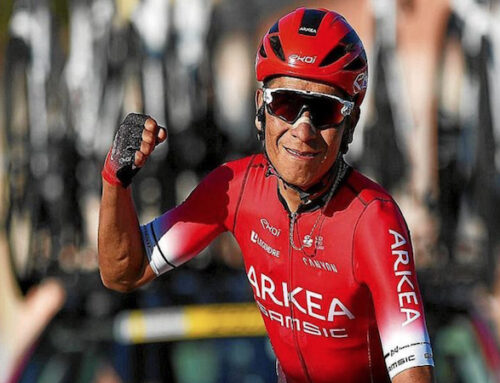
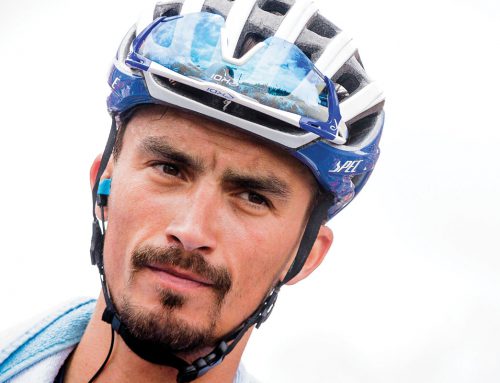
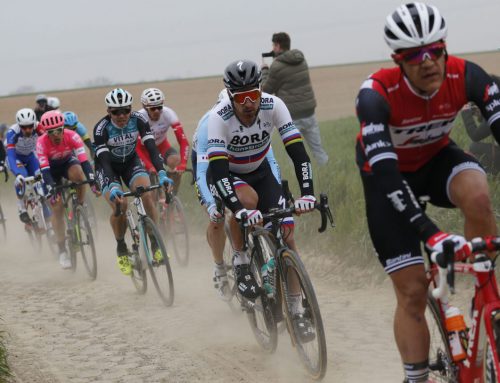
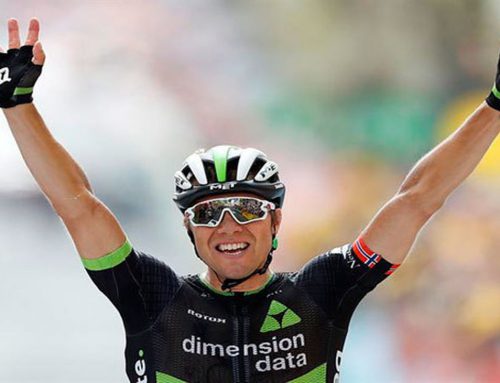
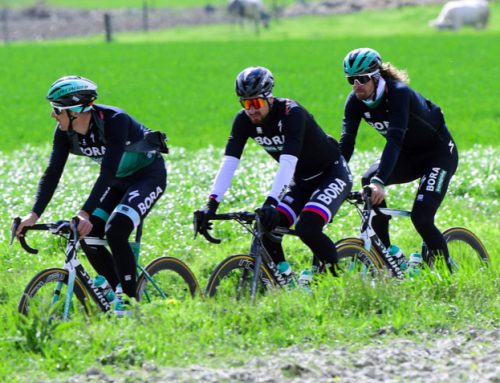
Leave A Comment